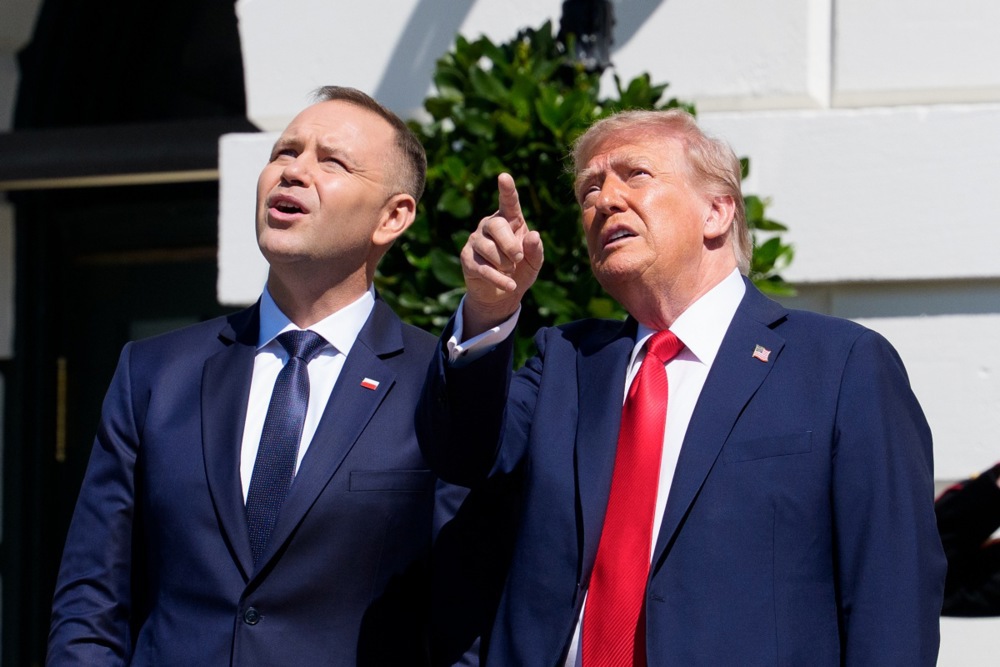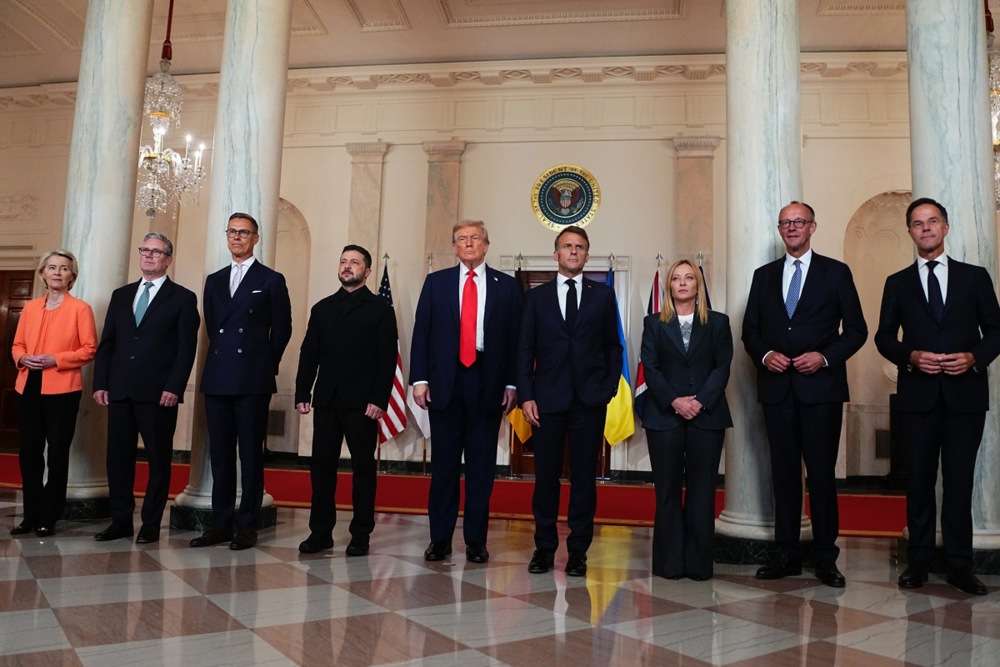Russia should not “whine” if its planes get shot down while violating NATO airspace, Poland’s foreign minister Radosław Sikorski told the country at the United Nations Security Council at an emergency meeting September 22.
Sikorski accused Russia of “insane nationalism” and a “lust for domination”, at the meeting to discuss an incursion of Estonian airspace by three Russian fighter jets.
The incident followed a September 10 incursion of Polish airspace by twenty Russian drones, which turned out to be decoys. Some of those were shot down by Polish F-16 fighter planes.
Poland’s Prime Minister Donald Tusk said earlier September 22 that his country would not hesitate to shoot down objects that violate its airspace and pose a threat.
“You have been warned,” said Sikorski, saying “if another missile or aircraft enters our space without permission, deliberately or by mistake, and gets shot down and the wreckage falls on NATO territory, please don’t come here to whine about it.”
The airspace breaches were merely the latest manifestation of an escalating “hybrid war” waged by Russia on the West, Sikorski maintained, while listing what he said were Russia’s offences over the years.
“Murders of politicians, journalists, human rights defenders and defectors, cyberattacks against hospitals and financial institutions, arsons, including in Poland, the UK and Lithuania, postal packages containing incendiary devices all over Europe including Germany, attacks on Ukrainian embassies, in addition to standard espionage and disinformation,” the foreign minister said.
The Polish foreign minister said of Russia’s “lust for domination” that it “will not cease until you realise that the age of empires is over and that your empire will not be rebuilt”.
Sikorski claimed Russia and the USSR had helped to start two world wars and the Cold War. (The claim, though, is controversial and would likely anger Moscow.) He urged Russians, “Don’t start another one.”
Earlier on the same day, reporters asked Sikorski whether he was concerned about receiving sufficient support from the United States over Russian incursions into NATO airspace. “I hope President Nawrocki convinces President Trump how urgent this issue is,” he said, adding Poland’s president has “special relations” with Trump.
The Polish Armed Forces have a constitutional duty to defend the country’s borders, said Sikorski, and “no one can relieve them of that”, when reporters asked whether Warsaw had consulted its NATO allies about potentially downing Russian objects in Polish airspace.
However, Sikorski’s remarks came after Trump made clear on September 21 that the US was ready to defend Poland and the Baltic states against Russia.
When asked by a journalist on the White House lawn whether, in the event of Russian escalation, he would support Poland and the Baltic states, Trump answered: “I would. I will”.
At the UN Security Council, the US maintained that it was prepared to defend every inch of NATO soil. This repeated the position Washington’s representative took during the September 12 debate over the drone incursion into Poland.
However, Przemysław Wipler, a senior MP for Poland’s opposition right-wing Confederation party, told state radio Trójka the foreign minister was engaging in “blustering” in order to “show off”.
Reacting to Sikorski’s comments at the UN Security Council, he said “the remarks make out that Poland is ready for war” that could be caused “by a Russian pilot actually dying on NATO soil”, though he questioned whether this was true.
Wipler also said he was sceptical about whether Poland’s military was prepared for a full scale war.
When asked about how Turkey had shot down in 2015 a Russian fighter plane which encroached its airspace, he responded that “Turkey has NATO’s largest army in Europe and has been in a state of war readiness for years.”
Sikorski was speaking in the midst of his own conflict with Poland’s President Karol Nawrocki, who is aligned with the opposition Conservatives (PiS).
Nawrocki snubbed the minister by not inviting him onto the President’s plane on the journey to New York, where Sikorski attended the UN Security Council and where the Polish President will speak at the UN General Assembly later in the week.
The President and the foreign minister, who have not met since Nawrocki’s election victory in June, are locked meanwhile in a conflict over the appointment of the Polish ambassador to the US.
Bogdan Klich, whom Sikorski wants to appoint as ambassador and who is currently Poland’s chargé d’affaires (or temporary ambassador) in Washington, delayed relaying a letter from US President Donald Trump to Nawrocki. However, he informed the Polish media of the letter’s existence.
Nawrocki has refused to appoint Klich as ambassador, saying he has a record of publicly criticising Trump.
He also points out Klich was criticised by the investigation into the country’s 2010 Smolensk air disaster in 2010, in which Polish President Lech Kaczyński perished.
Klich, as defence minister, had failed to manage VIPs’ security, argued the investigation.





